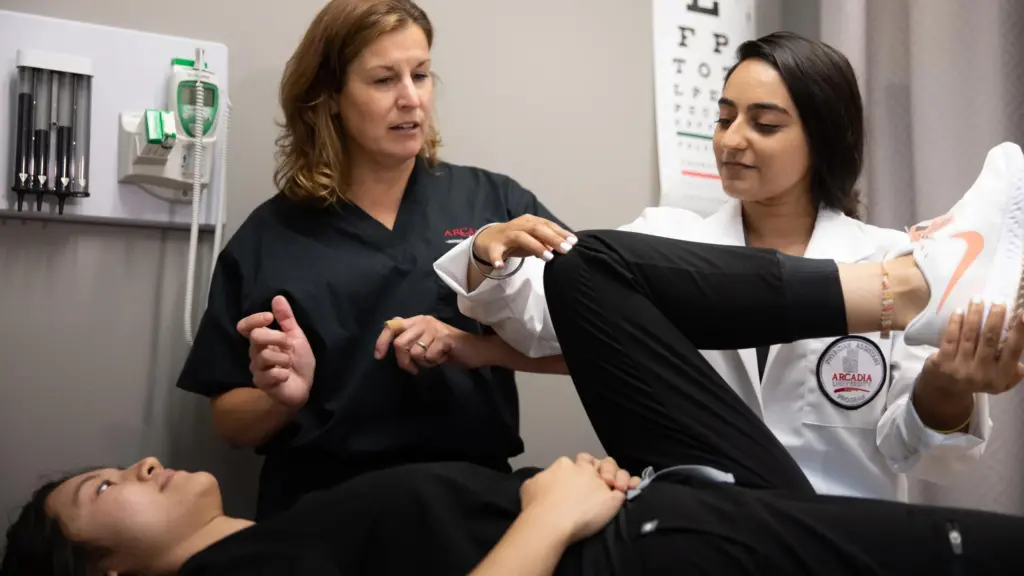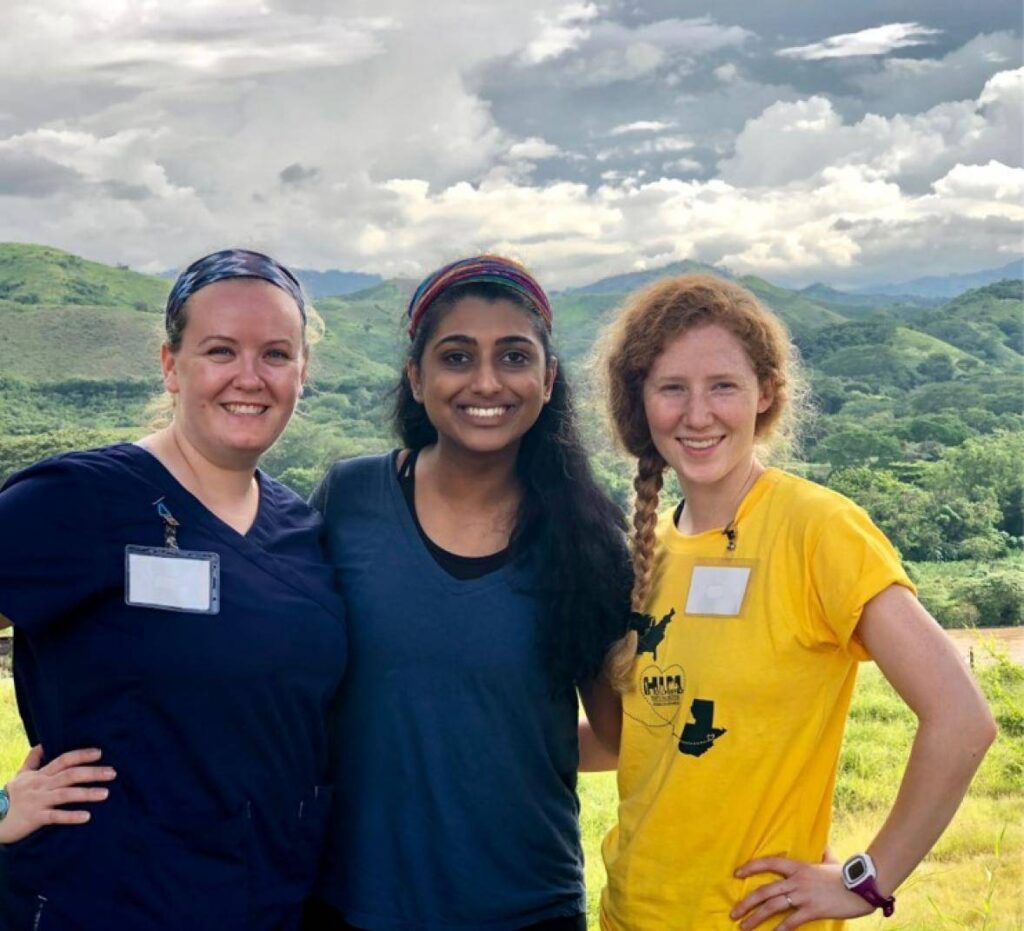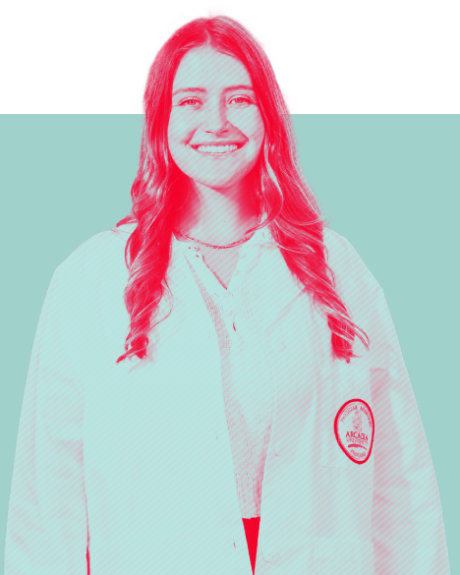
- Degree Level
- Graduate
- Degrees Offered
- Master of Medical Science—Physician Assistant
- Department
- Medical Science
- school/college
- College of Health Sciences
Master of Medical Science
Physician Assistants (PAs) are medical professionals educated in general medicine and trained to diagnose illness, develop and manage treatment plans, prescribe medications, and frequently serve as a patient’s principal healthcare provider. With thousands of hours of medical training, PAs are versatile, collaborative, integral members of healthcare teams in many hospitals and clinical practices. The role of the physician assistant is to practice medicine under the direction and supervision of a licensed physician and provide diagnostic and therapeutic patient care in virtually all medical specialties and settings. PA job descriptions are as diverse as those of physicians, and include clinical practice, patient education, team leadership, medical education, health administration, and research.
Arcadia’s Physician Assistant (PA) program provides students from across the country with the foundation for professional growth through personal attention, quality instruction, diverse clinical experience, and a commitment to excellence. To that end, the program continues to enjoy an overall exceptional pass rate (A3.12c) on the National Commission on the Certification of Physician Assistants (NCCPA) board examinations, with a five-year, first-time taker average pass rate for the program of 97%.
The program’s mission, values, and goals produce graduates who are well-equipped to deliver high-quality, cost-effective health care in a wide variety of settings, including hospitals, clinics, physicians’ offices, and other community settings. All students who meet the graduation requirements and have passed the NCCPA PANCE exam are eligible to apply for licensure in all 50 states.
The Arcadia University Physician Assistant Experience
- The PA Program is in the Department of Medical Science, in the College of Health Sciences which includes the departments of Physical Therapy and Public Health
- One program with two campuses: Glenside, PA and Christiana, DE
- 2-Year Program starting yearly in late May
- Option for 3-Year Dual Degree Master of Medical Science in Physician Assistant and Master of Public Health (MMS, MPH)
- Technologically advanced 3D anatomy visualization tables for anatomy and physiology education that complements the prosected human cadaver experience
- Clinical simulation experiences including standardized patients, training models, and multiple clinical skills and procedures and training opportunities throughout the two years
- Service and global opportunities in the didactic and clinical phases of the program
- Advanced technology to enhance the educational experience including video capture lecture for synchronous and asynchronous learning and electronic note service to promote a collaborative learning environment
- Ten program-secured clinical rotations consisting of seven required rotations and three elective rotations
Experiential Learning

"I would recommend Arcadia’s PA program because it provides a very welcoming environment to learn about the PA profession and what we need to know to be successful PAs. The facility, the faculty, and the students are all very close and work together to provide the best education that you can get.”
Melissa Behrer '25 MPH/MMS



Global Experiences
Many of our students find the experience of service or international practice to be an illuminating piece of their medical education. These experiences can offer unique perspectives on how medical care differs in various communities, both domestically and internationally.
Program Accreditation
At its June 2023 meeting, the Accreditation Review Commission on Education for the Physician Assistant, Inc. (ARC-PA) placed the Arcadia University Physician Assistant Studies Program sponsored by Arcadia University on Accreditation-Probation status until its next review in June 2025.
Probation accreditation is a temporary accreditation status initially of not less than two years. However, that period may be extended by the ARC-PA for up to an additional two years if the ARC-PA finds that the program is making substantial progress toward meeting all applicable standards but requires additional time to come into full compliance. Probation accreditation status is granted, at the sole discretion of the ARC-PA, when a program holding an accreditation status of Accreditation – Provisional or Accreditation – Continued does not, in the judgment of the ARC-PA, meet the Standards or when the capability of the program to provide an acceptable educational experience for its students is threatened.
Once placed on probation, a program that fails to comply with accreditation requirements in a timely manner, as specified by the ARC-PA, may be scheduled for a focused site visit and is subject to having its accreditation withdrawn.
Specific questions regarding the Program and its plans should be directed to the Program Director and/or the appropriate institutional official(s).
The program’s accreditation history can be viewed on the ARC-PA website at https://www.arc-pa.org/accreditation-history-arcadia-university/.
Is Arcadia’s PA program still accredited?
Arcadia’s PA program remains accredited and will continue to provide excellent instruction and clinical experiences. The ARC-PA decision does not impact the ability of students to receive financial aid and will not impact their ability to earn their Master of Medical Science within their original timeline, advance through the program, or sit for the Physician Assistant National Certifying Examination (PANCE) for certification.
Will the accreditation status impact the student experience in the PA program?
Neither the didactic nor the clinical experience will change for currently enrolled PA students.
What will happen with the faculty and staff in the PA program?
The expert faculty and dedicated staff in the PA program will continue to provide the extraordinary instruction and support for students currently enrolled, and they will guide the program for all future students upon their matriculation.
How will the University address standards to change the accreditation status?
Arcadia has made significant progress over the past year in addressing the concerns cited by ARC-PA, and we will continue working with ARC-PA during this process. The program and institution have already made several changes and will continue to comply with the necessary requirements from the ARC-PA.
Where can I find more information on the accreditation status change?
Contact us at paadmissions@arcadia.edu; more information also can be found at: www.arc-pa.org/accreditation-history-arcadia-university/.
Coursework
(A3.12d) The first three semesters of the program consist of didactic and laboratory coursework in the basic and clinical sciences, including a 12-week anatomy course with a prosected cadaver experience. First-year, didactic phase, students are introduced into clinical settings as part of the Medical Interview and Counseling course in the summer semester and these encounters continue into the clinical year. At the conclusion of the didactic phase, students complete their core competency examinations, receive training in clinical procedures and participate in standardized patient simulation experiences. During the clinical phase, in addition to coursework, students participate in supervised clinical experiences, standardized patient simulation experiences and return to campus periodically for exams and professional development days.
This is a 24-month program. At the discretion of the program director, students in the clinical phase may take up to a three-month leave of absence only. All degree requirements must be completed within 30 months from the start of the program or at the discretion of the program.
Clinical Rotations
(A3.12d) The clinical phase consists of core and elective rotations. There are seven required rotations: Emergency Medicine, Family Medicine, Behavioral Medicine, Internal Medicine, Women’s Health, Pediatrics, and Surgery. In addition, there are three clinical electives. Prospective and enrolled students are not required to solicit clinical sites or preceptors. A3.03 standard The program must define, publish, make readily available and consistently apply a policy for prospective and enrolled students that they must not be required to provide or solicit clinical sites or preceptors. Students are still allowed to suggest clinical sites or preceptors, as long as the program evaluates and approves those suggestions for educational suitability. All clinical preceptors and sites must meet the requirements of the program. Each student’s clinical year schedule is at the discretion of the program. Changes to rotation schedules are not made at student’s request. Faculty members perform site visits while the students attend their supervised clinical practical experiences. Every 12 weeks, the students return to campus for exams and professional development experiences.
Featured Courses
Medical Interview and Counseling Skills
Required Course
This course provides direction on the general approach to the patient with special attention to providing culturally competent care. Instruction is provided on how to elicit and document a complete history and how to offer basic counseling to patients.
Mechanisms of Disease
Required Course
Lectures and conferences cover the function of cells, tissues, organs, and systems of the human body and the pathogenesis of common human illnesses.
Physical Diagnosis I
This course includes lectures, demonstrations, and practical exercises in the principles of medical history-taking and an introduction to the medical physical examination. Simulated patient encounters in small groups help reinforce medical knowledge, history taking and physical examination techniques.
Behavioral Health
Required Course
This course provides an overview of behavioral health conditions commonly encountered in medical practice as well as various treatment modalities. Evaluation and management of the psychiatric patient is explored in both the primary care and emergent settings.
Emergency Medicine
Required Course
This course presents the general concepts needed for the physician assistant to care for patients with emergent conditions. The course emphasizes stabilization, medical management, and emergency procedures.




